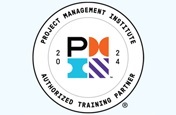The Project Management Professional (PMP)® Certification Prep course is an extensive program designed to equip learners with the knowledge and skills essential for effective project management. It covers a comprehensive range of topics that form the basis of the PMP® exam content outline, from fundamental concepts like understanding what a project is, to more complex subjects such as risk, procurement, and Stakeholder management.
Starting with an introduction to project management, learners will gain insights into the Project life cycle, the roles and responsibilities of a project manager, and contemporary trends in project management, including Agile considerations. The course is divided into modules that address how to create high-performing teams, initiate projects with strong governance, and execute work while keeping the team on track and maintaining a focus on the business context.
Each module delves into critical areas such as scope, schedule, cost, quality, resource, communication, risk, procurement, and Stakeholder management. By understanding these facets, learners can effectively manage projects in various organizational structures and environments.
By the end of the course, participants will be prepared not only to take the PMP® exam but also to apply best practices in their professional roles, ensuring that they can lead and direct projects that add value to their organizations and stakeholders.

Purchase This Course
♱ Excluding VAT/GST
Classroom Training price is on request
You can request classroom training in any city on any date by Requesting More Information
♱ Excluding VAT/GST
Classroom Training price is on request
You can request classroom training in any city on any date by Requesting More Information

1-on-1 Training
Schedule personalized sessions based upon your availability.

Customized Training
Tailor your learning experience. Dive deeper in topics of greater interest to you.
Happiness Guaranteed
Experience exceptional training with the confidence of our Happiness Guarantee, ensuring your satisfaction or a full refund.

Destination Training
Learning without limits. Create custom courses that fit your exact needs, from blended topics to brand-new content.

Fly-Me-A-Trainer (FMAT)
Flexible on-site learning for larger groups. Fly an expert to your location anywhere in the world.
To ensure that you are well-prepared for the Project Management Professional (PMP)® Certification Prep course, the following prerequisites are recommended:
While these are the recommended prerequisites, the course is designed to accommodate a range of experiences and backgrounds, with the aim of preparing all participants for the PMP® certification exam and a successful career in project management.
The PMP® Certification Prep course equips professionals with comprehensive project management skills and practices.
Target Audience and Job Roles:
Introduction to the course’s learning outcomes: Gain comprehensive insights into Project Management principles, acquire the skills needed to lead projects successfully, and prepare for the PMP® Certification Exam with our in-depth course.
Learning objectives and outcomes:
The project life cycle describes the stages a project goes through from start to finish. It begins with initiation, where the project's scope and purpose are defined. Planning follows, involving detailed steps like scheduling and budgeting. Execution is where the planned activities are carried out. Monitoring and controlling occur concurrently with execution, ensuring the project stays on track. The cycle concludes with closure, where the project is finalized and evaluated. Organizations often rely on standards from the Project Management Institute and adhere to methodologies like PMBOK to enhance project success. PMP certification training can equip project managers with essential skills for managing these stages effectively.
Agile considerations in project management focus on iterative processes and flexibility, vital for adapting to change quickly. Emphasizing collaboration, iteration, and customer feedback, Agile methodologies allow teams to deliver functional aspects of projects incrementally. This approach contrasts with traditional methods, often described in PMBOK Certification training or by the Project Management Institute. Agile is beneficial where project scopes are variable or where rapid innovation is critical. While Agile isn't explicitly covered under PMP certification training, many principles can be integrated into PMI frameworks to enhance project responsiveness and stakeholder satisfaction.
Stakeholder management is a crucial skill for project managers, focusing on the identification, analysis, and strategic engagement of all stakeholders involved in a project. By understanding and prioritizing the interests and influences of different stakeholders, successful project managers can ensure alignment and support throughout the project's lifecycle. Effective stakeholder management enhances communication, mitigates risks, and significantly improves the potential for project success, making it an essential part of project management frameworks like PMBOK Certification and training programs at Project Management Institutes.
The PMP® Certification Prep course equips professionals with comprehensive project management skills and practices.
Target Audience and Job Roles:
Introduction to the course’s learning outcomes: Gain comprehensive insights into Project Management principles, acquire the skills needed to lead projects successfully, and prepare for the PMP® Certification Exam with our in-depth course.
Learning objectives and outcomes:


